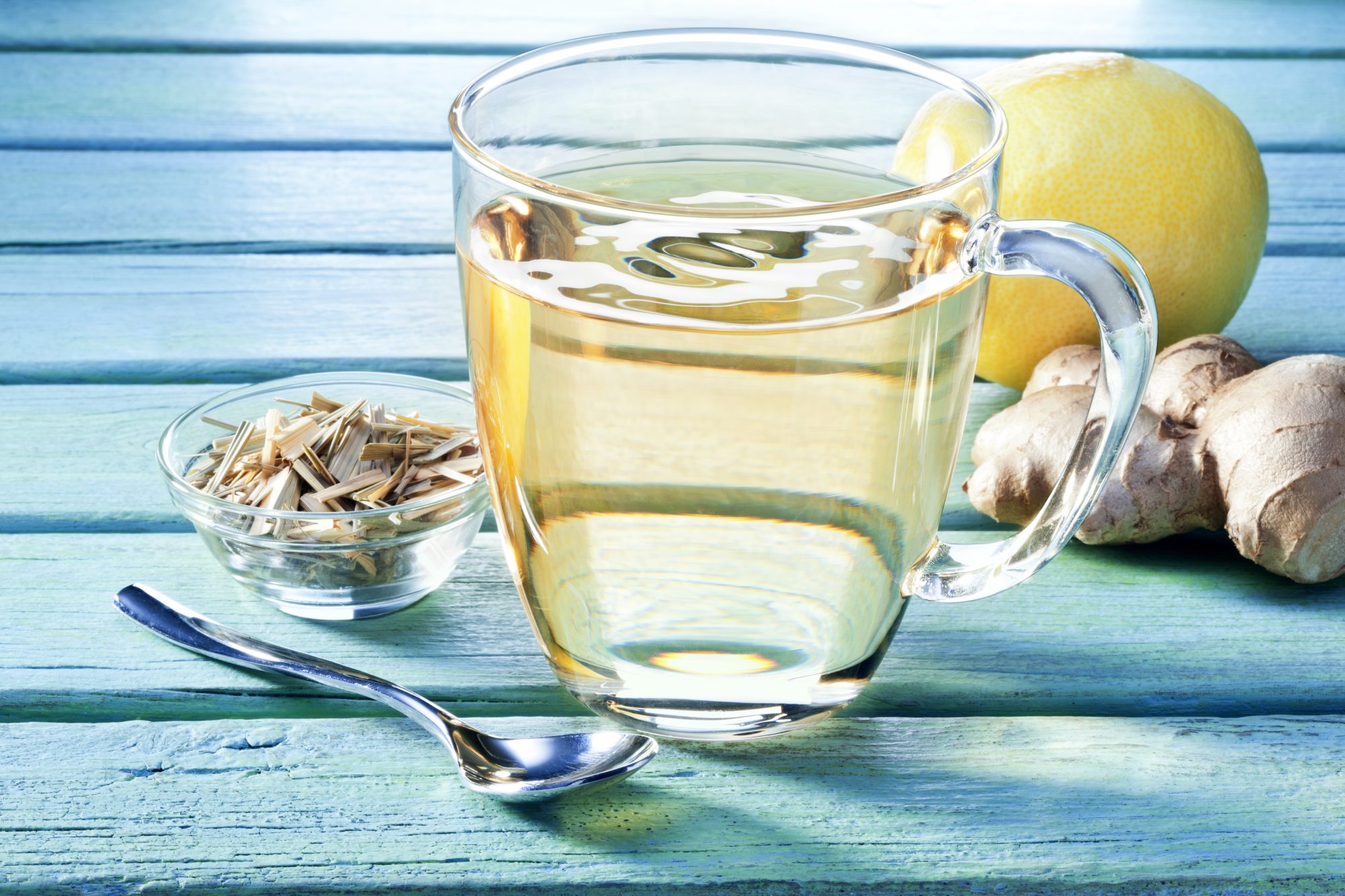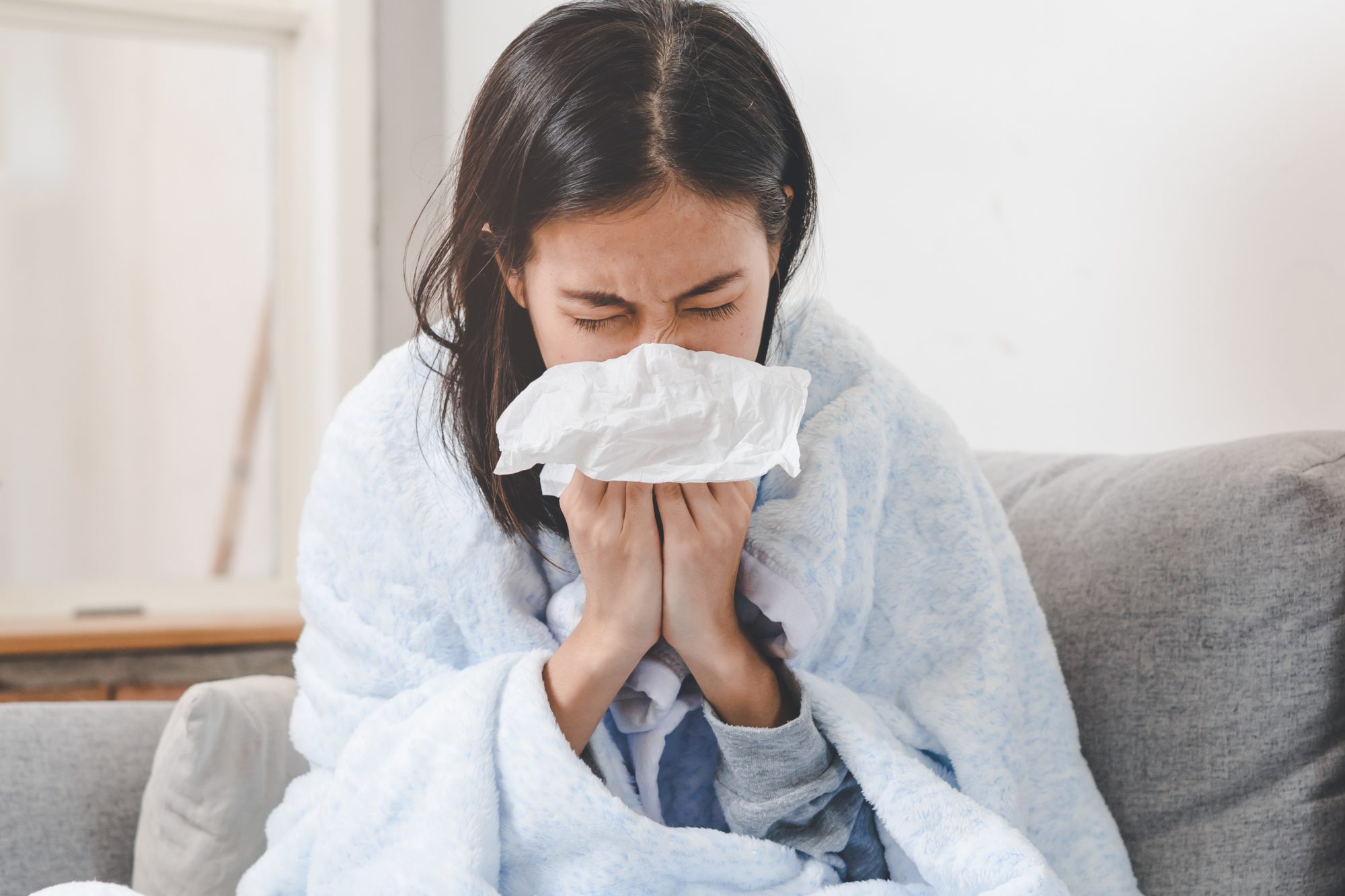Dr Deborah Lee discusses how to prevent a cold using simple at-home remedies and easy lifestyle changes
Unfortunately, the common cold and other viruses thrive in the winter months, making upper respiratory tract infections a big problem for us all.
General tips to prevent a cold
– Keep away from other people with colds – Don’t share glasses, cups, cutlery, food, towels or anything where the virus could be transmitted. Most colds are contagious from a few days before symptoms start and for a further 14 days.
– Wash your hands regularly – Wash them for 20 seconds at a time, with soap and warm water, and dry them thoroughly. This kills viruses.
– Try not to touch your face – Eyes, nose or mouth. Studies show that without realising it we touch our faces on average 16 times an hour! This skin-to-skin contact is how we transmit viruses to our mucous membranes, and how they can enter the body.
– Disinfect your mobile phone. In one American study, mobile phones were found to harbour 10 times more foreign organisms than toilet seats! When you pick up and put down your phone, such as in a coffee shop or restaurant, it quickly gets covered in bacteria and viruses.
– Take a vitamin D supplement – The NHS advises 400 IU (10 mcg) per day. Vitamin D is known to play a major role in the control of the immune system. Vitamin D is also found in foods such as salmon, eggs, mushrooms, and fortified milk and cheese.
– Avoid dry air – Viruses like dry air, so consider the use of a humidifier. Dry air dries out your nasal passages and can increase the chance of acquiring a respiratory infection.
– Keep active – Regular exercise boosts your immune system.
– Keep a positive mindset – Thinking positively has been shown to result in better immunity than those who have negative thinking. Optimism seems to lower cortisol levels, and cortisol weakens the immune response. This may be why chronic stress often results in recurrent minor illnesses.
– Eat more probiotics – These are good bacteria which live in the bowel and have positive effects on health. In one 2014 study of rugby players, eating probiotics resulted in fewer colds. Probiotics include yoghurt made with live cultures, kefir, sauerkraut and pickles.
Boost your immune system
The best way to ensure your immune system is working well is to eat a nutritious, balanced, varied diet full of fresh fruit and vegetables. These contain the all-important antioxidants, which have antimicrobial and anti-inflammatory properties.

Great foods to eat include
– Citrus fruits – Such as oranges and lemons, which contain high doses of vitamin C
– Peppers – Also high in vitamin C
– Broccoli – High in vitamins A, C and E, plus high in fibre
– Spinach – High in vitamins A and C
– Ginger – Contains anti-inflammatory substances
– Garlic – Contains allicin
– Almonds – High in vitamin E
– Sunflower seeds – Also high in vitamin E
– Green tea – Particularly high in antioxidants
Which supplements should you take?
If you eat a well-balanced diet, there is no need to take supplements, with a few exceptions –
Pregnant women are advised to take folic acid supplements
– Pregnant women are advised to take folic acid supplements, from 12 weeks before they start trying for a baby until 12 weeks of pregnancy, to reduce the risk of a baby with a neural tube defect such as spina bifida.
– Vitamin D is advisable for everyone over the winter months when the days are short and dark. Some specific groups prone to vitamin D deficiency are babies and children aged under 6, pregnant women and breastfeeding mums, those who are housebound, the elderly, those with dark skin and/ or who keep their skin covered, and those who are clinically vulnerable. Vitamin D is important for your immune system.
Vegans and vegetarians are at high risk of B12 deficiency
– Vegans and vegetarians are at high risk of B12 deficiency, which causes an underactive immune system. This group are recommended to eat fortified B12 foods 2 or 3 times a day and would be well advised to take B12 supplements, 10 mcg per day, or 2000 mcg per week. Vitamin B12 also plays a vital role in immunity.
If you are concerned you are not getting enough vitamins and minerals from your diet you should discuss this with your GP.
Can you get rid of a cold quickly as soon as you start feeling unwell?
Unfortunately, we all get colds from time to time, no matter how hard we try to prevent a cold. The final section isn’t exactly how to prevent a cold – but how to get rid of it quickly!
Try the following –
– Gargle several times a day with salt water.
– Rest – Get plenty of sleep.
– Keep well-hydrated.
– Take hot honey and lemon drinks to soothe symptoms such as a sore throat, blocked nose or cough.
– Take paracetamol for a headache and/or try and lower a fever (as long as you are not allergic to paracetamol. Nonsteroidal anti-inflammatories (NSAIDs) such as ibuprofen can also be taken so long as there is no history of gastritis or stomach ulceration. Take advice from your GP if needed.
– Use of menthol/eucalyptus such as Vicks Vapour rub will help clear nasal congestion. Try steam inhalations – take care with very hot/boiling water as there is always a risk of burns and scalds.
– Taking vitamin C supplements has not been shown to reduce your chance of catching a cold. Still, some research has shown that taking regular supplements of vitamin C can reduce the duration and severity of cold symptoms.
– Zinc supplements may help reduce the duration of a cold by a day or so and may reduce the severity of symptoms. It can be taken as zinc lozenges, one every 2-3 hours from when symptoms start.
Although wearing a mask is unlikely to stop you from catching a cold, if you have a cold, it can help stop you from transmitting it to other people.
References
- https://www.prevention.com/health/a20469206/how-to-prevent-a-cold/
- https://www.healthline.com/health/food-nutrition/foods-that-boost-the-immune-system#green-tea
- https://www.nhs.uk/common-health-questions/food-and-diet/do-i-need-vitamin-supplements/
- https://www.vegansociety.com/resources/nutrition-and-health/nutrients/vitamin-b12/what-every-vegan-should-know-about-vitamin-b12
- https://www.nutrition.org.uk/healthy-sustainable-diets/vitamins-and-minerals/?level=Health%20professional
- https://www.healthline.com/nutrition/does-vitamin-c-help-with-colds#TOC_TITLE_HDR_2
- https://www.sciencefocus.com/the-human-body/can-face-masks-reduce-the-spread-of-colds/
- https://www.webmd.com/vitamins-and-supplements/supplement-guide-zinc
- https://pubmed.ncbi.nlm.nih.gov/16238860/
- https://www.ncbi.nlm.nih.gov/pmc/articles/PMC4465119/#:~:text=Cortisol%20is%20ordinarily%20anti%2Dinflammatory,the%20immune%20response%20%5B18%5D.
- https://www.healthline.com/health/incubation-period-for-cold#:~:text=Once%20you%20develop%20symptoms%2C%20recovery,for%20up%20to%202%20weeks.
This piece was written and provided by Dr Deborah Lee, Dr Fox Online Pharmacy












In cold don’t drink cold things like shake, coconut water, etc, avoid them and start drinking green tea it will give you relief from cough and when you went for sleep apply vicks all over your nose.